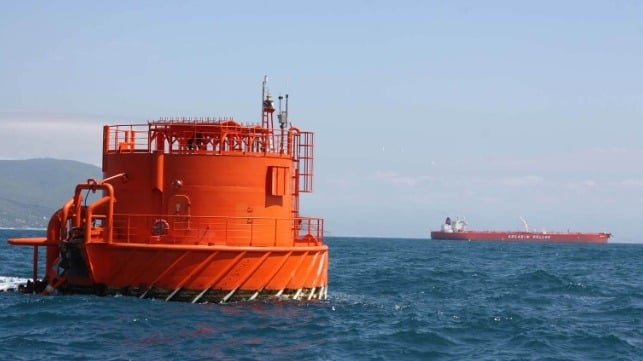Russian Security Temporarily Closes CPC Terminal in the Black Sea

Russia has been tightening security at its main crude oil loading terminals, which must function in order for the Kremlin to pay for its ongoing war in Ukraine. This week, these precautionary measures briefly closed key oil ports in the Black Sea, affecting both Russian and Kazakh export volumes.
With no meaningful crude oil export pipeline capacity, Russia must ship its oil to its few remaining customers by sea, and there are only a few locations that are set up for loading deep-sea tankers. This makes them a prime target for Ukrainian sabotage. The Ust-Luga terminal in the Baltic has already encountered at least one apparent mine attack on an ammonia carrier alongside the pier, and seven other Russia-linked vessels have been hit by mysterious blasts since December. Ukraine's covert services are widely believed to be behind the apparent attacks.
As a precautionary measure, President Vladimir Putin has ordered his internal security service - the FSB - to require preclearance for all inbound vessels to sweep for hazards. At least some ports are expected to implement dive inspections of ship hulls - a costly if thorough way to control the problem.
The decree essentially shut down the terminals at Novorossiysk, including the Caspian Pipeline Consortium (CPC)'s loading buoys south of the city. The CPC handles up to 1.5 million barrels per day of oil from Kazakhstan, accounting for more than one percent of the world's entire crude supply. As of Thursday, those terminals were back up and running again, according to Reuters.
The security measures add one more layer of friction to a process that has become increasingly cumbersome for Russian oil exporters. With the approval of the EU's 18th sanctions round, the European version of the G7 price cap is now a floating rate derived from benchmark pricing, and it is low enough that it disqualifies the law-abiding Greek tankers that have been handling about half of Russia's oil. That will make it marginally more difficult for Russian exporters, who will have to rely even more heavily on the "shadow fleet" of under-the-radar tankers, which eschew Western insurance and class services.
"The easiest way for Russia to steer clear of unpleasant surprises, including tanker explosions, would be to withdraw from Ukraine. Three and a half years into the war, that seems a vain hope," commented Atlantic Council senior fellow Elisabeth Braw, an expert on the shadow fleet.
